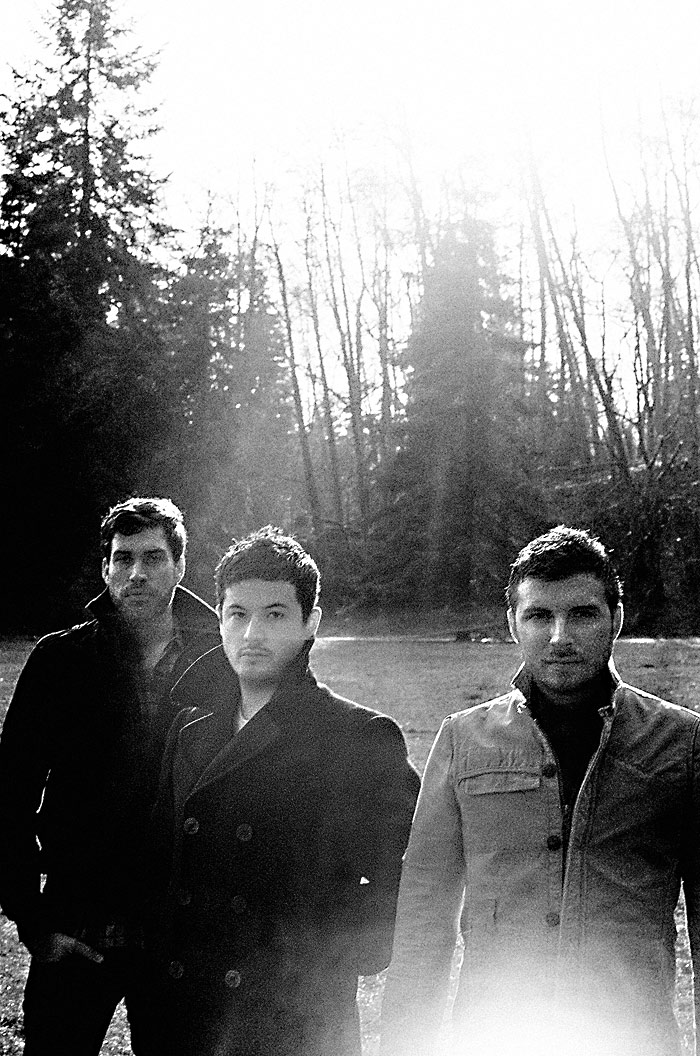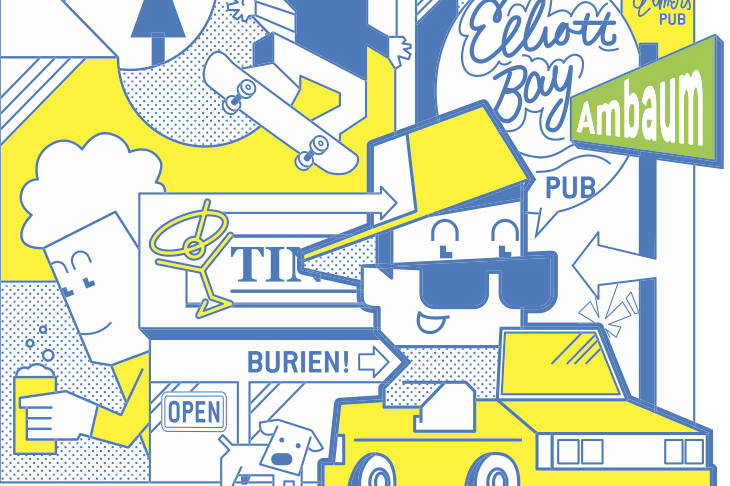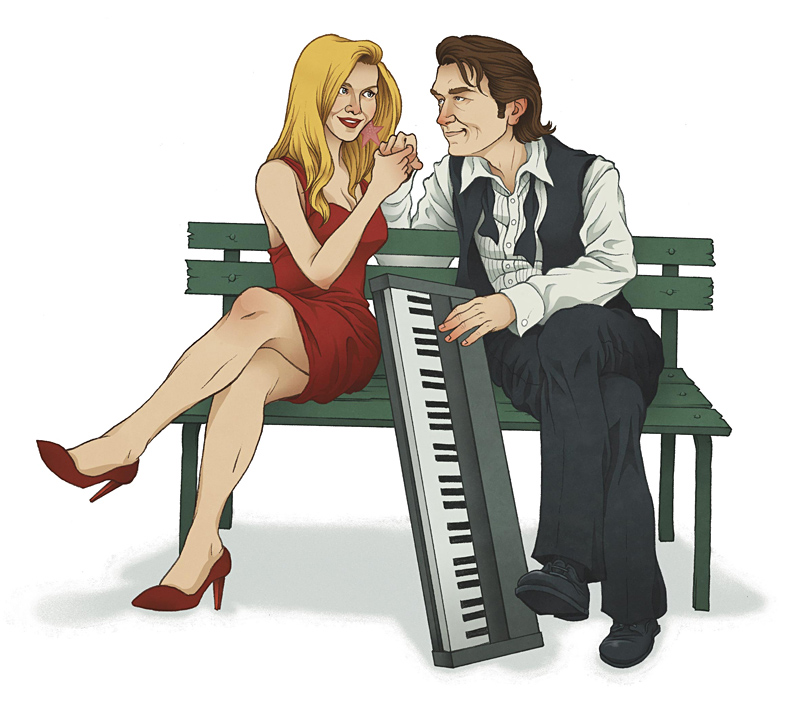Barcelona, a three-piece from Seattle, plays lush, melodic, piano-driven pop-rock. They’re often compared to Coldplay, something the band first loathed but has since come to embrace. Barcelona’s members are in their mid-20s, have dimples, are earnest and kind, shower regularly, and are not afraid of hair product and cologne. One of them lives in the suburbs, and all three went to a Christian university.
In 2007, Barcelona released an album, Absolutes, that stuck with me like no other local release that year. Sure, there were flecks of Coldplay on the record, but there was just as much Sigur Rós and Radiohead, and lead singer Brian Fennell’s vocals were reminiscent of George Michael. Most striking, there wasn’t a track on the LP that stood out as a single—Absolutes was an album in the purest sense of the word, eschewing the fuck-and-run nature of the digital era.
I first saw Barcelona perform live in September 2007 at Neumos on Capitol Hill. The crowd couldn’t have been less reflective of that neighborhood, Seattle’s epicenter of hyperjudgmental citizen rock critics. People were smiling, talking, dancing, and singing along, and there were very few men sporting skinny jeans and beards.
In late 2008, Barcelona signed with a major label, Universal/Motown. In late April they’ll re-release Absolutes, remixed by Michael Brauer, a three-time Grammy winner who’s worked with Coldplay. The album will feature a handful of new tracks, recorded in Death Cab for Cutie drummer Jason McGerr’s studio.
In less-spoiled cities, such a sequence of events would lead locals to get behind Barcelona with a fervor generally reserved for small-town Texas football teams. But this being Seattle, Barcelona’s reception by local critics who witnessed the band’s Saturday set at SXSW in Austin a couple of weeks ago was entirely too predictable. “By the time Barcelona went onstage around 3:45, the audience had thinned, perhaps owing to the band’s formidable mediocrity,” wrote The Seattle Times. “Out of all the interesting, original rock coming out of Seattle, these disposable popsters get signed to Universal? Then again, I don’t get much from Death Cab or Coldplay, who these guys emulate.” The Stranger was similarly derisive: “Barcelona played a set of tepid, watered-down Death Cab mope rock; not a band I would have chosen to rep Seattle.”
Knocking back a pitcher of Pabst at the Pioneer Square Saloon a couple of Fridays ago, Fennell and guitarist Chris Bristol chuckle when reminded of these critical darts. “The crowd was great, bigger than Blue Scholars’ [who played afterward],” recalls Fennell. “It’s like, ‘What show were you at?’ We’re not dirty enough for Seattle, and that’s fine. But we love being a pop band from Seattle. We go around the country and are championing the city.”
“It’s funny how they compare us to Death Cab and Coldplay,” adds Fennell. “Death Cab’s one of the best bands to come out of Seattle, and Coldplay is one of the biggest bands in the world. At this point, if you want to compare us to Coldplay, they have a lot of fans we’d love to hear our music.”
Fennell, Bristol, and drummer Rhett Stonelake met while attending Seattle Pacific University, and became a band in 2005. To generate enthusiasm for their early shows, they canvassed SPU dorms and the University of Washington Greek system on foot.
“We pretty much realized Capitol Hill would never be our place,” recalls Fennell. “It’s so insular.”
“Our crowd is Ballard and Queen Anne, but there are a lot of people who drive in from outside Seattle to see our shows,” says Bristol.
In Austin, Fennell says, “there were a couple interviews where people were like, ‘You signed to a major label; that’s really not a cool thing to do.'” But Fennell and Bristol insist their experience at Universal/Motown has been the antithesis of the usual major-label horror story. For instance, it was the band, not the label, who wanted to remix Absolutes prior to release. “They signed us as an indie band and treat us like an indie band,” says Fennell.
“I’m pretty convinced that if people hung out with us, they’d realize we don’t have attitudes like a lot of the bands they like,” adds Fennell, before taking a shot at the industry’s sultans of snot. “As long as we never get on Pitchfork, we’re good.”








